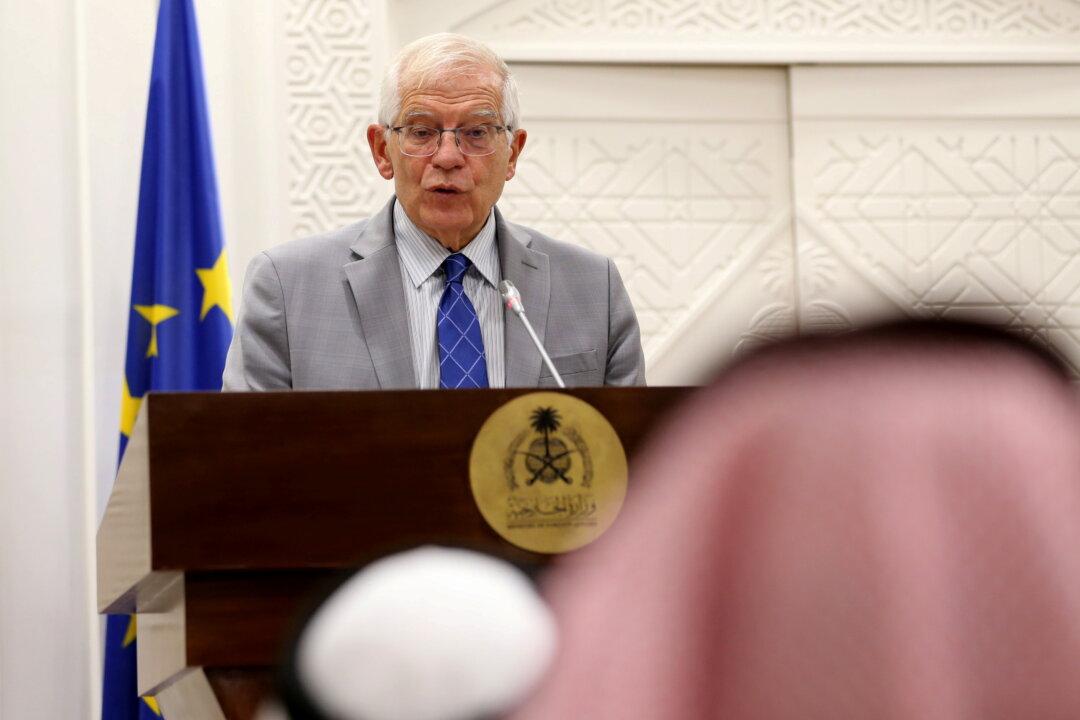RIYADH—The European Union foreign policy chief said on Sunday the Taliban government’s behavior up to now was “not very encouraging”, and any economic collapse in Afghanistan would raise the risk of terrorism and other threats.
Josep Borrell, speaking at a joint news conference with his Saudi Arabian counterpart, also said he hoped nuclear talks between global powers and Iran would restart in Vienna “soon”.





